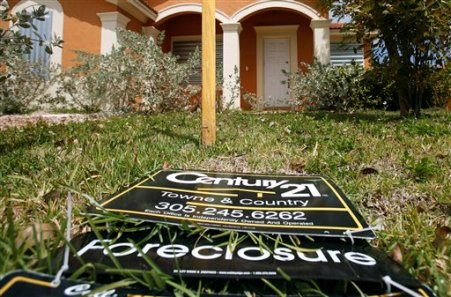Wells Fargo & Co. is ignoring federal rules on reverse mortgages and forcing homes into foreclosure instead of giving heirs a chance to buy them, according to a lawsuit.
Wells Fargo & Co. is ignoring federal rules on reverse mortgages and forcing homes into foreclosure instead of giving heirs a chance to buy them, according to a lawsuit.
Estates and surviving spouses have the right to purchase properties at 95 percent of appraised value after the death of a borrower who took out a federally-insured reverse mortgage, lawyers for a California man said in the complaint filed yesterday in federal court in San Francisco.
Wells Fargo hasn't been notifying heirs of this right and has been starting foreclosures if demands aren't met for repayment of the full mortgage balance, according to the complaint filed by the son of a California homeowner. The plaintiff, Robert Chandler, also sued the Federal National Mortgage Association, or Fannie Mae.
“Wells Fargo's actions are not just wrong, they are economically irrational,” Michael Ng, Chandler's attorney, said today in a statement. “Even though elderly borrowers paid for insurance that protects the bank against the downturn in the housing market, Wells Fargo insists on evicting family members from homes that will go unsold and unoccupied.”
The lawsuit, brought as a class action by Chandler on behalf of himself and other heirs, seeks a court order stopping foreclosures and evictions in affected homes and damages for breach of contract.
Wells ‘Reviewing' Complaint
Wells Fargo is “reviewing” the complaint and “will reserve comment,” Vickee Adams, a spokeswoman for the San Francisco-based company, said today.
Reverse mortgages are available only to home owners aged 62 or older. In some cases, when one spouse is younger than 62, only the older spouse's name will appear on the reverse-mortgage documents.
Reverse-mortgage loans pay out a home's equity to the homeowner, often in installments, and are usually repaid when the borrower dies or moves out of the house. Borrowers are considered in arrears if they don't keep current on property taxes and insurance.
--Bloomberg News--







